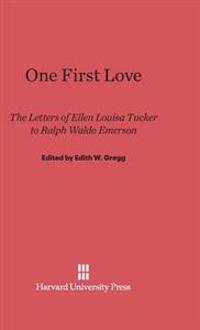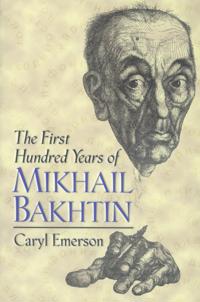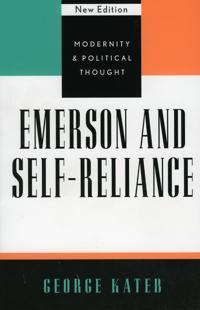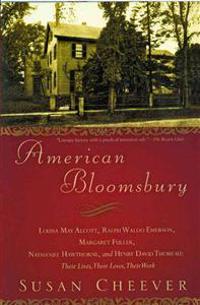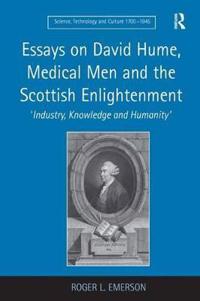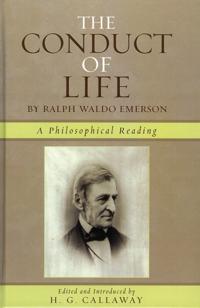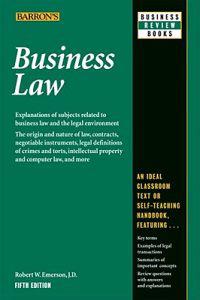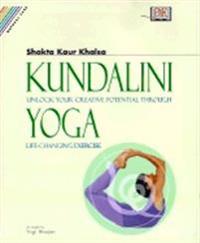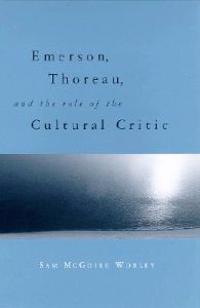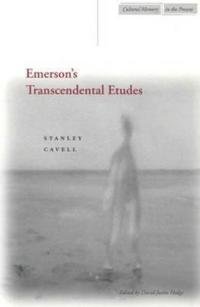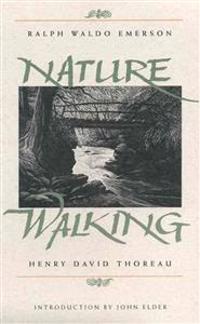Challenging Behaviour (Pocket)
avEric Emerson, Stewart L. Einfeld
ISBN: 9780521728935 - UTGIVEN: 2011-02-03Concise, accessible summary of current knowledge about challenging behaviour, fully updated with expanded sections on emergence and prevention strategies.[...]
Chemical Oceanography And The Marine Carbon Cycle (Inbunden)
avSteven R. Emerson, John I. Hedges
ISBN: 9780521833134 - UTGIVEN: 2008-04-24A textbook on chemical oceanography with full coverage of the marine carbon cycle.
Scholastic Reader Level 2: Teensy Weensy Animals (Häftad)
avJoan Emerson
ISBN: 9780545751834 - UTGIVEN: 2015-01Get in on all the adorable action and learn to read with Teensy Weensy Animals
Discover the tiniest and cutest animals from around the world. Teensy Weensy Animals will introduce kids to penguins, octopuses, and sloths all smaller than the palm of their hands Featuring full-color photos of the[...]The Last Fifth Grade of Emerson Elementary
ISBN: 9780553521375 - UTGIVEN: 2016-04Laura Shovan s engaging, big-hearted debut is a time capsule of one class s poems during a transformative school year. Families change and new friendships form as these terrific kids grow up and move on in this whimsical novel-in-verse about finding your voice and making sure others hear it.
Eig[...]Emerson
ISBN: 9780674016279 - UTGIVEN: 2004-09"An institution is the lengthened shadow of one man," Ralph Waldo Emerson once wrote--and in this book, the leading scholar of New England literary culture looks at the long shadow Emerson himself has cast, and at his role and significance as a truly American institution. On the occasion of Emerson'[...]
Collected Works of Ralph Waldo Emerson, Volume I: Nature, Addresses, and Lectures
ISBN: 9780674139701 - UTGIVEN: 1971-01In 1849 Ralph Waldo Emerson collected in one volume all of his published work he thought worthy of preservation that had not been contained in the two series of Essays (1841, 1844) and the Poems (1847). Included were the essay Nature (1836); four orations, "The American Scholar," "The Divinity Schoo[...]
The Emerson Museum (Häftad)
ISBN: 9780674248847 - UTGIVEN: 1997-04After the death of his wife in 1832, Ralph Emerson made a decision to pursue "wholeness". This book reveals how he went about achieving this, and how he conceived a uniquely American literary practice. Central to his project were the aims and methods of natural science. The book describes how Emerso[...]
One First Love: The Letters of Ellen Louisa Tucker to Ralph Waldo Emerson (Inbunden)
avEllen Louisa Tucker, Edith W. Gregg
ISBN: 9780674434097 - UTGIVEN: 2013-10Letters, poems, and fragments of a journal are the only first-hand reflection we have of a personality of major importance in the life of Ralph Waldo Emerson, that of the beautiful and gifted Ellen Louisa Tucker, whom he married in 1829. Blithe, humorous, full of charm and candor, the engaging seven[...]
The First Hundred Years of Mikhail Bakhtin (Häftad)
avCaryl Emerson
ISBN: 9780691050492 - UTGIVEN: 2000-03Among Western critics, Mikhail Bakhtin (1895-1975) needs no introduction. His name has been invoked in literary and cultural studies across the ideological spectrum, from old-fashioned humanist to structuralist to postmodernist. In this candid assessment of his place in Russian and Western thought, [...]
People of the Dream: Multiracial Congregations in the United States (Övrig)
avMichael O. Emerson
ISBN: 9780691136271 - UTGIVEN: 2008-02-25It is sometimes said that the most segregated time of the week in the United States is Sunday morning. Even as workplaces and public institutions such as the military have become racially integrated, racial separation in Christian religious congregations is the norm. And yet some congregations remai[...]
Emerson (Pocket)
avEvelyn Barish
ISBN: 9780691604442 - UTGIVEN: 2014-07Evelyn Barish began this book partly to inquire into a silence--Ralph Waldo Emerson's failure to discuss or mourn his father, who died when the boy was seven years old. As she probed the meaning of this loss, she found herself tracing the development of an American prophet, producing a detailed inte[...]
Emerson and Self-Reliance
ISBN: 9780742521452 - UTGIVEN: 2002-05Ralph Waldo Emerson was a great moral philosopher. One of his principle contributions is the theory of self-reliance, a view of democratic individuality. 'Nietzsche was Emerson's best reader,' and George Kateb provides an accessible reading of Emerson that is friendly to the interests of Nietzsche a[...]
American Jihad (Häftad)
avEmerson
ISBN: 9780743234351 - UTGIVEN: 200302Describes how Islamic terrorist organizations are using the American system to establish cells and training camps near major cities in the United States, linking events in recent history to terrorist operations while summarizing government efforts to monitor and defend against political threats. Rep[...]
American Bloomsbury: Louisa May Alcott, Ralph Waldo Emerson, Margaret Fuller, Nathaniel Hawthorne, and Henry David Thoreau: Their Lives, Th (häftad)
ISBN: 9780743264624 - UTGIVEN: 2007-09The 1850s were heady times in Concord, Massachusetts: in a town where a woman's petticoat drying on an outdoor line was enough to elicit scandal, some of the greatest minds of our nation's history were gathering in three of its wooden houses to establish a major American literary movement. The Trans[...]
Academic Patronage In The Scottish Enlightenment (Inbunden)
avRoger L. Emerson
ISBN: 9780748625963 - UTGIVEN: 2008-04-29This archivally based book on the 388 Scottish professors 1690-1806 adds much to what is known about how they got their jobs, about the universities of Scotland, and about Scottish politics in that period.[...]
Essays on David Hume, Medical Men and the Scottish Enlightenment (Inbunden)
avRoger L. Emerson
ISBN: 9780754666288 - UTGIVEN: 2009-03The Scottish Enlightenment was a period of feverish intellectual and scientific progress, in a country previously considered to be marginal to the European intellectual scene. Yet the enlightenment was not about politeness or civic humanism, but something more basic - the making of a society which c[...]
The Conduct of Life (Häftad)
avRalph Waldo Emerson
ISBN: 9780761834113 - UTGIVEN: 200603Ralph Waldo Emerson's 1860 book, The Conduct of Life is among the gems of his mature works. First published in the year of Abraham Lincoln's election as President, this work poses the questions of human freedom and fate. This new edition emphasizes Emerson's philosophy and thoughts on such issues as[...]
Business Law (Häftad)
avRobert Emerson
ISBN: 9780764142406 - UTGIVEN: 200912"Business Law" focuses on the importance of legal theory in the everyday business world, explaining such subjects as tort responsibility, government regulations, contracts, environmental law, product liability, consumer protection, and international law, among many other topics. Also discussed in de[...]
Kundalini Yoga (Häftad)
avShakta Kaur Khalsa, Gillian Emerson-Roberts
ISBN: 9780789467706 - UTGIVEN: 200101Kundalini comes from the Indian word kundal, which means "lock of hair from the beloved." The uncoiling of this "hair" is the awakening of the kundalini, the creative potential that already exists in every human. The yoga in this book is a sampling of the vast wealth called Kundalini Yoga. Here you [...]
Encyclopedia of Herbal Medicine (Inbunden)
avAndrew Chevallier, Gillian Emerson-Roberts
ISBN: 9780789467836 - UTGIVEN: 200011Fully updated and authoritative, this revised edition of DK's Encyclopedia of Herbal Medicine makes this classic, completely illustrated reference guide even bigger and better than the original. Featuring more than 550 medicinal plants and the most current scientific research, this volume provides a[...]
Emerson, Thoreau, and the Role of the Cultural Critic
ISBN: 9780791448267 - UTGIVEN: 2001-01Reinterprets important works of the social criticism of Emerson and Thoreau as based in defense of community.[...]
Emerson's Transcendental Etudes
ISBN: 9780804745437 - UTGIVEN: 2003-11This book is Stanley Cavell's definitive expression on Emerson. Over the past thirty years, Cavell has demonstrated that he is the most emphatic and provocative philosophical critic of Emerson that America has yet known. The sustained effort of that labor is drawn together here for the first time in[...]
Nature and Walking (Häftad)
avRalph Waldo Emerson, Thomas W. Nason
ISBN: 9780807014196 - UTGIVEN: 199407









